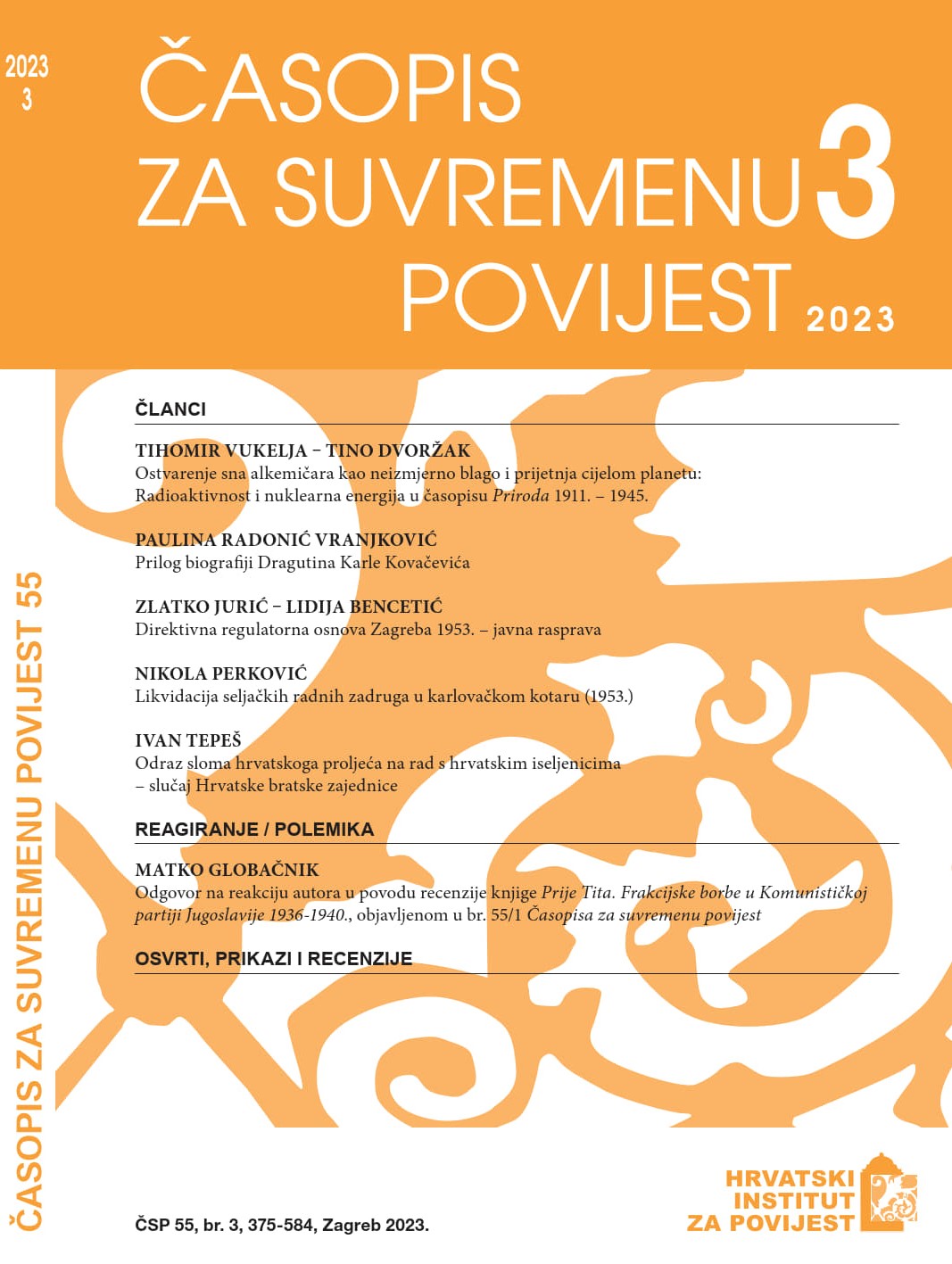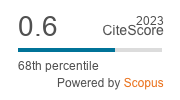The Impact of the Croatian Spring on the Work with Croatian Emigrants – the Case of the Croatian Fraternal Union
DOI:
https://doi.org/10.22586/csp.v55i3.26077Keywords:
Croatian Spring; Croatian Fraternal Union; Croatian Heritage Foundation; Croatian Emigration; Croatian political émigrésAbstract
This paper analyses the circumstances that affected Croatian emigrants after the collapse of the Croatian Spring, particularly regarding the relations of important figures in Yugoslav society and political affairs with those of the HBZ (Croatian Fraternal Union). The events in Croatia caused by the collapse of the Croatian Spring in December 1971 and the repressive measures applied to the leading figures in them gave rise to a wave of dissatisfaction among emigrants; in particular those who had left for political reasons, who voiced charges that the Croatian people were disenfranchised and oppressed. Although few in number, with their intense propaganda activity and the public expression of anti-Yugoslav and pro-Croatian attitudes, they caught the attention of the international public and also aroused the sympathy of those emigrants who had been building friendly relations with the homeland and its institutions, which caused considerable concern among diplomatic and socio-political representatives in Yugoslavia. A considerable cause for concern was the criticism of the Yugoslav leadership ensuant upon the collapse of the Croatian Spring expressed by John Badovinac, president of the HBZ, which was the most numerous and wealthiest émigré organization and one that had for years maintained good and amicable relations with Yugoslavia, particularly with the MIH (Croatian Heritage Foundation). The concern grew even more because Badovinac used the same arguments as political émigrés. It was feared that political dissidents, after many years of failure to take over the leadership of HBZ, could do so, which would have caused Yugoslavia to lose the support of slightly more than one million emigrants in the United States of America and Canada. Croatian and Yugoslav diplomatic, social and political institutions adopted a joint policy with regards to the HBZ in order to avoid provoking a reaction; it was decided that the Croatian Heritage Foundation send a delegation to the emigrants of the USA and Canada, primarily with the task of maintaining good relations with the HBZ. During the visit, the delegation met up only with pro-Yugoslav oriented emigration organisations; the talks with the HBZ were successful and exceeded expectations, because Badovinac had been influenced by the pro-Yugoslav majority of the main board of the HBZ as well as by the official American policy supporting the Yugoslav leadership. Owing to the successful maintenance of good relations with the HBZ in the Croatian Heritage Foundation, the conclusion was drawn that in general the work with Croatian emigrants, loyal to Yugoslavia, would be successfully continued, regardless of predictions from the beginning of 1971 that had been disappointing to say the least. On the other hand, regardless of the circumstances in the HBZ, the political emigrant community, encouraged by the development of the situation in the homeland for stronger unity and gathering, also continued with its intense activities among the emigrants.
Downloads
Published
How to Cite
Issue
Section
License
Copyright (c) 2023 authors and journal

This work is licensed under a Creative Commons Attribution-NonCommercial 4.0 International License.
Copyright holders are the publisher Croatian Institute of History and the authors. Journal of Contemporary History is an Open Access journal. Users are allowed to read, download, copy, redistribute, print, search and link to material, and alter, transform, or build upon the material, or use them for any other lawful purpose as long as they attribute the source in an appropriate manner according to the Creative Commons licence CC BY-NC. The papers published in Journal of Contemporary History can be deposited and self-archived in the institutional and thematic repositories providing the link to the journal's web pages and HRČAK. Journal does not charge article processing charges (APC). The editors assume no responsibility for statements of fact or opinion made by contributors.




